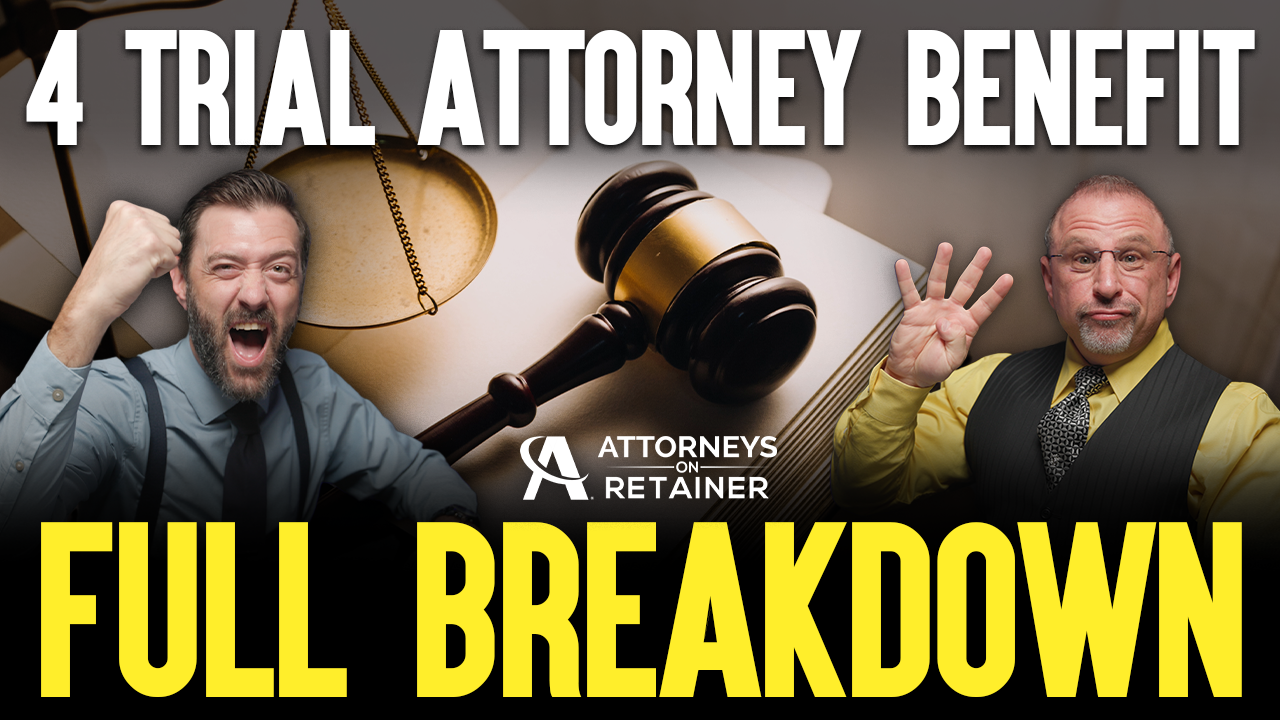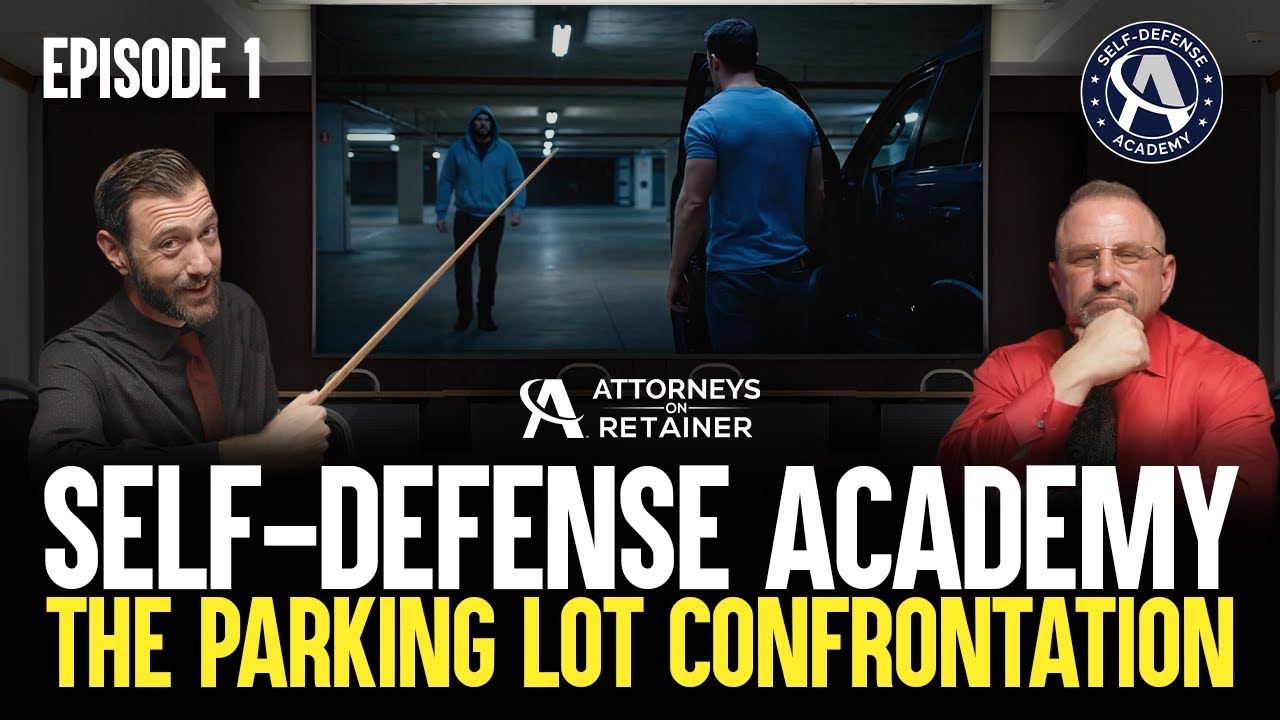Fighting The State Ep. 10: Sentencing
Featuring Attorneys Marc J. Victor and Andy Marcantel
December 2, 2024
A criminal case generally progresses through three main phases: detention, guilt, and punishment. Criminal defense attorneys Marc J. Victor and Andrew C. Marcantel offer valuable insight into the sentencing phase, highlighting the crucial role of strategic preparation by defense attorneys during this pivotal stage.
Criminal Case Phases
Detention Phase: This is the initial stage, where the defendant is either held in pre-trial jail or released on bail or other conditions.
Guilt Phase: This phase involves the trial proceedings, where the court determines whether the defendant is guilty based on the evidence presented by the prosecution and defense counsel.
Punishment Phase: The final step is where the court imposes a punishment if the defendant is found guilty or has entered a guilty plea. Sentencing generally occurs within thirty days after a plea deal is accepted or after a conviction at trial. In misdemeanor cases, however, sentencing can happen immediately.
Pre-Sentencing Preparation
Preparation for sentencing often begins as early as day one, running parallel to defense efforts, since many cases end in plea agreements. The defense team plays a crucial role by drafting a comprehensive sentencing memorandum that compiles character letters, expert reports, the defendant’s personal history, and mitigation to inform the judge.
Defense attorneys also prepare clients for the pre-sentence interview with probation officers, helping them avoid harmful disclosures that could negatively impact risk assessment. Character witnesses are carefully selected to provide stories that highlight the defendant’s rehabilitation potential and community support. Expert mitigation testimony is gathered through extensive interviews and record reviews to present a complete picture of the defendant’s background and risk factors.
Additionally, defense attorneys negotiate court time with the judge and opposing counsel to ensure enough time is allocated for complex hearings, avoiding surprises and allowing for strategic presentation. Informal agreements with prosecutors can also influence their impression of the case, potentially leading to more lenient sentencing recommendations.
Sentencing Hearing
Before sentencing in felony cases, a court-related entity prepares a pre-sentence report that includes interviews and background information about the defendant. This report helps the judge better understand the defendant’s history and circumstances.
The prosecution usually speaks first at the sentencing hearing, presenting factors and evidence to argue for a harsher sentence. Next, the victims’ families may make victim impact statements to express how the crime affected them in order to influence the severity of the sentence.
After that, defense counsel presents information to argue that the defendant should get the lowest possible sentence. Defense attorneys often present character letters written on behalf of defendants and call character witnesses who can share their positive experiences with the defendant. Defense teams also regularly provide information about the defendant’s personal background or other aspects of the defendant’s life relevant to the offense.
Finally, the defendant has the opportunity to address the court personally in a statement called an allocution, before the judge pronounces a sentence. Defendants have the right not to participate in the allocution and may not be penalized for not participating.
Factors Considered at Sentencing
The federal sentencing system works differently from state courts. The federal system employs guidelines to direct the court as to how long someone should be sentenced. However, federal judges do not have to follow these guidelines, as the guidelines have been deemed advisory rather than mandatory by the Supreme Court. As a result, judges have more discretion in deciding the adequacy of a sentence, even if it means going against the guideline range.
Notably, under the “Dual Sovereignty Doctrine,” separate governmental entities, such as the federal government and a state government, may prosecute an individual for the same criminal conduct without violating the Fifth Amendment’s Double Jeopardy Clause.
While state statutes, sentencing guidelines, and judicial discretion play central roles in determining a sentence, several other factors also significantly impact the outcome:
- Severity and Classification of the Crime: Whether the offense is a felony, misdemeanor, or petty offense can greatly influence sentencing decisions.
- Aggravating Factors: Circumstances that make a crime more serious or increase a defendant’s culpability may lead to more severe punishment.
- Mitigating Factors: Circumstances about a crime or a defendant that make the crime seem less blameworthy or the defendant’s culpability lower, which can lead to a reduced sentence
- Prior Convictions: A defendant’s criminal history may lead to enhanced penalties.
- Mandatory Minimums: Certain offenses, such as those involving firearms, carry mandatory minimum sentences that may limit a judge’s discretion.
- Plea Negotiations and Stipulated Sentences: Agreements between the prosecution and defense often shape the final sentence and can significantly influence the judge’s ruling.
The attorneys encourage defense teams to prepare for and understand these elements as they are essential to navigate the sentencing process effectively. They emphasize that the battle is not over after a guilty verdict, because sentencing can be the most pivotal stage, where the outcome may have the greatest impact on a client’s future and freedom. If you would like to know more about our law firm and how our self-defense protection program, Attorneys On Retainers, can help you, please call 866-404-5112 or email us.



